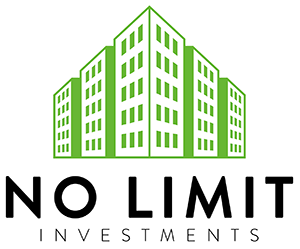What Does Real Estate Education Really Mean?
Real estate education refers to the process of learning how to invest, finance, and manage properties strategically. It covers everything from understanding market cycles to mastering the art of analyzing investment returns. The goal is to equip individuals with the tools and knowledge needed to make sound decisions in property investments.
According to the U.S. Department of Housing and Urban Development (HUD), real estate literacy helps investors and homeowners make informed decisions that reduce financial risks and improve economic stability (HUD, 2023). Education goes beyond theory; it builds confidence in managing property portfolios, evaluating financing options, and mitigating investment risks.
In the modern investment landscape, real estate education offers a roadmap for investors to maximize returns, leverage financial tools, and expand portfolios responsibly.
Why Is Real Estate Education Important for Long-Term Success?
Real estate is one of the most resilient asset classes. However, without proper knowledge, it can also be one of the riskiest. Real estate education helps investors understand the relationship between capital, property value, and cash flow.
Key benefits include:
- Better financial planning: Investors learn how to assess loan terms, property values, and interest rates.
- Reduced risk: Education minimizes costly mistakes in buying, selling, or refinancing properties.
- Improved decision-making: Investors can analyze local markets and emerging trends.
- Increased portfolio growth: Understanding leverage, tax strategies, and financing options leads to smarter scaling.
By investing in education, real estate investors prepare themselves to seize opportunities, avoid pitfalls, and build wealth sustainably.
How Does Financial Literacy Strengthen Real Estate Knowledge?
Financial literacy is the foundation of real estate success. The Federal Financial Literacy and Education Commission emphasizes that understanding credit, debt management, and investment principles leads to more secure financial decisions (Financial Literacy and Education Commission, 2022).
In real estate, financial literacy helps investors:
- Evaluate loan-to-value (LTV) ratios and their effect on borrowing power.
- Calculate property returns, such as cap rates and cash-on-cash yields.
- Understand credit scores and how they influence financing opportunities.
- Manage business credit facilities responsibly to expand investments.
Companies like No Limit Investments provide credit and debt advisory services to help investors strengthen their financial profiles before applying for property loans. This knowledge gives investors the confidence to leverage credit effectively without jeopardizing long-term growth.
How Can Real Estate Financing Education Unlock Investment Potential?
Financing is the lifeblood of real estate investing. Understanding how different loan programs work allows investors to structure deals strategically. Real estate education teaches investors how to align their goals with the right funding source.
Investors can explore options such as:
- Fix & Flip Loans for property renovation and resale.
- Buy & Hold Mortgages for income-generating rentals.
- BRRRR Financing which follows a cycle of buying, rehabbing, renting, refinancing, and repeating to build equity and cash flow.
- Cash-Out Refinance which allows investors to leverage existing equity for new investments.
- DSCR Loans that are based on rental income rather than personal income, ideal for scaling portfolios.
- New Construction Loans for developing or expanding new projects.
Each of these financing tools can be explored through professional platforms like No Limit Investments, which provide tailored real estate financing solutions that align with investor goals.
How Can Real Estate Education Help Investors Analyze Risk and Reward?
Every investment carries risk. However, real estate education helps investors assess those risks intelligently. Learning how to interpret market indicators such as vacancy rates, appreciation trends, and rental demand can determine whether a property will yield strong returns.
Real estate investors can use education to:
- Evaluate the after-repair value (ARV) of properties before purchase.
- Analyze debt service coverage ratios to ensure positive cash flow.
- Plan contingencies for fluctuating interest rates or economic downturns.
- Identify markets with sustainable growth potential.
This knowledge builds investor confidence and minimizes uncertainty. Through education, investors can balance the risk-reward ratio to achieve long-term financial resilience.
How Does Ongoing Real Estate Education Support Growth and Development?
Markets evolve, regulations change, and financing programs adjust over time. Ongoing education allows investors to stay ahead of these shifts. Whether it is learning about new tax laws or innovative financing models, continuous learning ensures adaptability.
Institutions like the U.S. Small Business Administration (SBA) highlight the importance of continuous learning in maintaining business competitiveness (SBA, 2023). For real estate investors, this means staying updated on:
- New construction lending standards.
- Real estate market data and property valuation trends.
- Business credit updates for securing larger portfolios.
- Growth and development services that guide long-term scalability.
By committing to lifelong learning, investors not only maintain profitability but also position themselves as experts in their markets.
How Can Real Estate Education Prepare You for a Changing Economy?
Economic shifts such as inflation, interest rate hikes, or housing shortages can dramatically impact property values and financing options. Real estate education helps investors respond strategically to these changes instead of reacting impulsively.
For instance, when interest rates rise, educated investors know how to pivot by exploring alternative financing products such as DSCR loans or cash-out refinances. They understand the value of diversification through mixed-use or rental properties and use data to identify undervalued opportunities.
By mastering financial adaptability, investors can thrive in both high and low economic cycles, turning market challenges into opportunities for portfolio growth.
How Do Professionals Use Real Estate Education to Build Wealth Strategically?
Successful investors do not rely on luck. They rely on systems, education, and professional guidance. Real estate education teaches investors to build strategies that align with both short-term profits and long-term stability.
These strategies may include:
- Building equity through renovation projects using fix & flip loans.
- Generating passive income through buy & hold mortgages.
- Scaling efficiently with BRRRR financing.
- Leveraging equity via cash-out refinance to fund more deals.
- Structuring cash flow analysis using DSCR loans and new construction programs.
Professionals who partner with financial experts like No Limit Investments access comprehensive real estate financing solutions, credit and debt advisory, and business credit facilities to fuel their investment journeys responsibly.
How Can Real Estate Education Support New and Experienced Investors Alike?
Whether you are new to real estate or a seasoned investor, education levels the playing field. Beginners can learn the fundamentals of property analysis and financing, while experienced investors can refine their techniques to optimize cash flow and portfolio performance.
Key lessons for all experience levels include:
- Understanding property valuation models.
- Managing leverage through proper financing.
- Strengthening business credit for larger investments.
- Diversifying portfolios across multiple property types.
Real estate education bridges the gap between aspiration and execution. It ensures that each decision contributes to a smarter, more sustainable investment strategy.
Why Should You Invest in Real Estate Education Today?

Real estate education is not a luxury; it is a necessity. It builds the knowledge and confidence required to make sound financial decisions, manage risks, and create lasting wealth.
For investors seeking personalized guidance, No Limit Investments offers comprehensive support through tailored financing options, credit and debt advisory, and development services. Their team helps investors at every stage, whether starting small or scaling to large property portfolios.
By investing in education and working with experienced professionals, you gain the foundation to build smarter, more profitable real estate ventures. Call today for more information!
Final Thoughts
Real estate education empowers investors to turn knowledge into action. It transforms uncertainty into opportunity and helps individuals create stable, long-term wealth through informed decisions. By learning the principles of financing, risk management, and growth, investors position themselves to navigate any market condition with confidence.
For those ready to elevate their investment journey, explore the solutions offered at https://nolimitinvestments.net/. With the right education and strategic financing, building a smarter investment portfolio becomes not just possible but inevitable.
Works Cited
Federal Financial Literacy and Education Commission. Financial Literacy and Education Commission Annual Report. U.S. Department of the Treasury, 2022.
U.S. Department of Housing and Urban Development. The Importance of Housing and Real Estate Education. HUD.gov, 2023.
U.S. Small Business Administration. Continuous Learning for Business Competitiveness. SBA.gov, 2023.
Frequently Asked Questions:
- How does real estate education help new investors get started?
Real estate education helps beginners understand the fundamentals of property investing, including how to evaluate deals, analyze markets, and secure financing. It introduces key financial tools such as fix & flip loans, buy & hold mortgages, and BRRRR financing, allowing new investors to make informed decisions and avoid costly mistakes early in their investment journey.
- What financing options can real estate investors explore to grow their portfolios?
Investors can access various financing options to support their growth. These include fix & flip loans for renovation projects, buy & hold mortgages for rental properties, cash-out refinances to access property equity, DSCR loans based on rental income, and new construction loans for property development. Each option serves different strategies, and platforms like No Limit Investments offer customized real estate financing solutions tailored to investor needs.
- Why is financial literacy important in real estate investing?
Financial literacy is the foundation of smart investing. It allows investors to understand credit scores, loan-to-value ratios, and debt management, which directly impact loan approval and terms. Services such as business credit facilities and credit and debt advisory offered through No Limit Investments help investors strengthen their financial profiles and secure better financing opportunities.
- How can ongoing real estate education prepare investors for market changes?
The real estate market constantly evolves due to changes in interest rates, property demand, and lending policies. Continuous learning helps investors adapt by staying updated on market trends, tax laws, and new financing programs. It also encourages strategic thinking and long-term planning through growth and development services designed to help investors scale sustainably.
- What role does professional guidance play in building a successful real estate portfolio?
Professional guidance ensures that investors make well-informed decisions when structuring deals or expanding portfolios. Partnering with experienced financial experts, such as those at No Limit Investments, allows investors to access personalized strategies, advanced financing options, and ongoing support to manage risk and maximize returns.







